DevOps Certification Training Course with Gen ...
- 190k Enrolled Learners
- Weekend/Weekday
- Live Class
DevOps Engineer ranks #2 on Glassdoor’s 50 Best Jobs in America rankings. “the role of DevOps Engineer has seen a 225% jump in postings on Indeed,” according to an SD Times report. Salary of a lead DevOps Engineer can be between $1,47,884 /yr and $242,000,, according to the latest job data from Glassdoor. In this post on “How To Become A DevOps Engineer”, I will be giving you a complete roadmap that will set you on the path of becoming a successful DevOps engineer.
But, who is a DevOps Engineer?
Well, DevOps Engineer is somebody who understands the Software Development Lifecycle and has an outright understanding of various automation tools for developing digital pipelines (CI/ CD pipelines).
Still, wondering who is a DevOps Engineer? then click on the post on DevOps Engineer roles and responsibilities, and let me know your thoughts about it.
Now the question is, who can become a DevOps Engineer?
If you are a Developer, an Ops person, or a Quality Assurance guy, or even a fresher, you can become a DevOps Engineer. But, let me tell you it will be a pretty long journey if you want to call yourself a DevOps guy :)
I would definitely recommend a Structured DevOps Engineer Course because it is not only about theoretical knowledge, it is more about the hands-on knowledge. You require proper infrastructure to perform such practicals. Also, a DevOps Engineer is not a person who just understands various tools. It is more about how and where you can use various Development, Testing, and Deployment technologies to get the maximum benefit (Architecting an SDLC Solution).
Now I will start this post, on How To Become A DevOps Engineer?
This Edureka DevOps Tutorial for Beginners will help you learn its concepts and tools with examples and demos. You will understand how a pipeline can be imagined for existing infrastructure. Furthermore, it will cover different DevOps projects & phases.
Let’s begin this journey, by listing down some important skills that organizations look for in a DevOps Engineer:
Python, Ruby, Go, Node.js)Linux, Unix, Windows, Sockets)GitHub, GitLab)HTTP, HTTPS, SSL, SSH)Docker, Kubernetes, Terraform, Ansible, CHEF, Puppet, )Gradle, Maven, npm)Jenkins, Bamboo, TeamCity)Ansible, Puppet, CHEF)Prometheus, Nagios, Datadog, New Relic, Sentry )AWS, Azure, Google Cloud, Heroku)Data Management, Design, and Implementation)Consider the following road map:
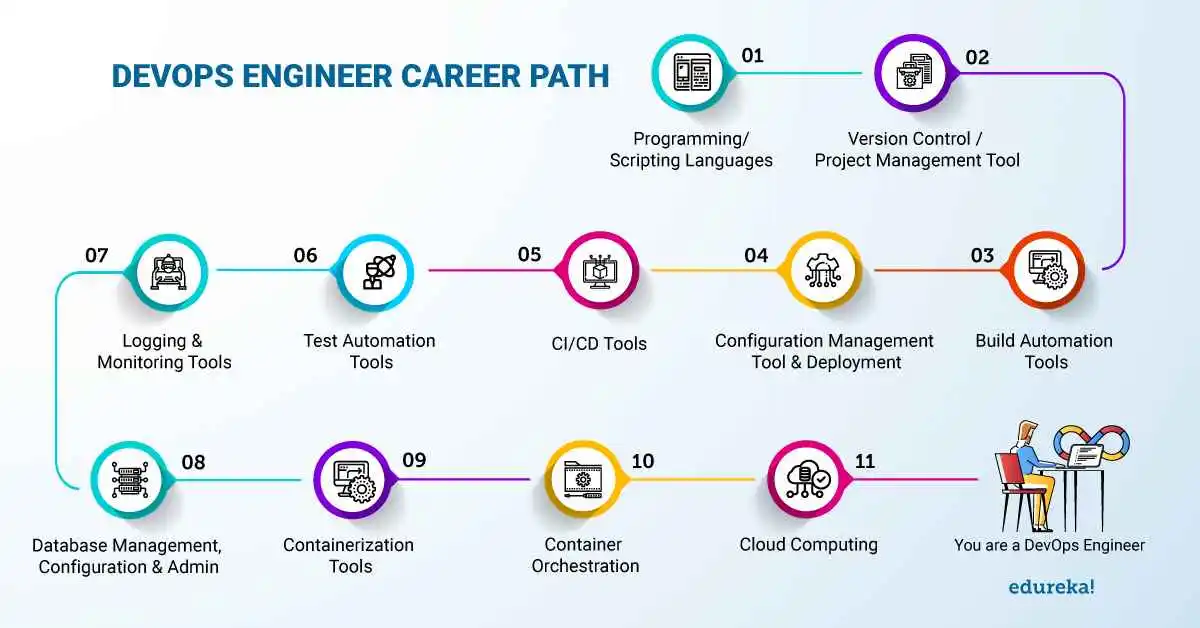
DevOps engineers link databases, debug code created by the development team, and automate procedures even though they don’t normally write source code. The speed of the DevOps lifecycle is largely due to automation, and a DevOps engineer is crucial to the execution of a DevOps automation strategy.
A DevOps engineer should also be familiar with the languages that their team uses to comprehend existing code, evaluate new code, and help with debugging.
The programming languages you should learn are:




Operating systems (OSs) are an essential component of the technology stack required for a DevOps team to operate. OSs run the servers that house the team’s deployed apps in addition to the local machines that the team uses to communicate and execute activities.
So that you are not dependent on the visual user interface (GUI) to set up your servers, you need to learn how to use the command line terminal. Tasks that might require numerous clicks in a GUI are made simpler by using the command line, and some commands can only be executed through the terminal. Since each OS differs from the others, learning more than one is recommended.
The following are common operating systems to learn:

Additionally, you should become familiar with the more general approaches and guidelines that control the creation and operation of operating systems. Both technical and conceptual understanding are crucial for a DevOps engineer.
Among the OS topics to learn are:

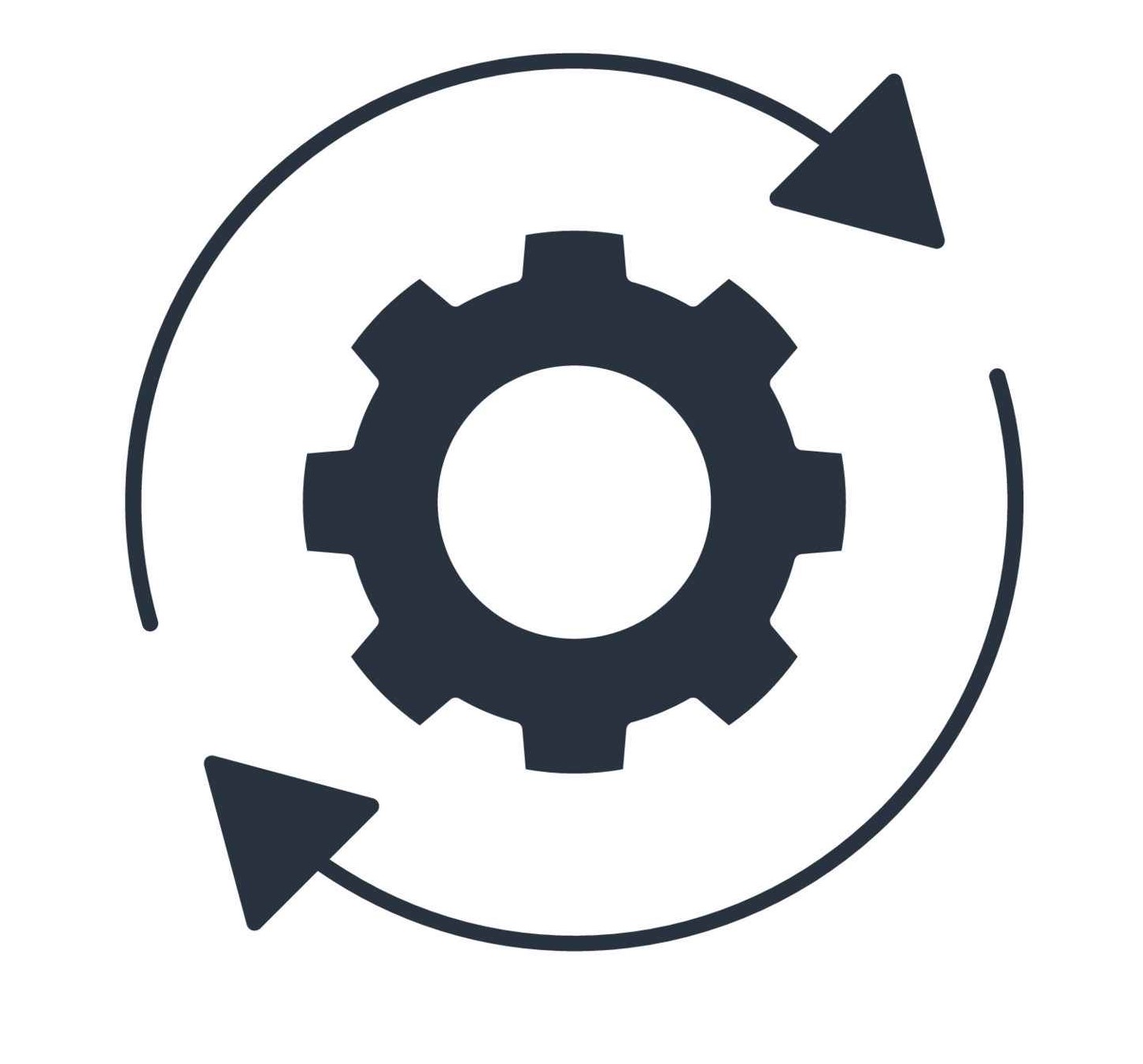
You should have a good hands-on understanding of at least one version control/source code management tool, ideally Git, and be proficient with Git workflows.

Any web-based application that transfers or receives user data does so via protocols. As a result, it’s critical to comprehend how various request types are supported by protocols.
To stop malicious actors from intercepting your data or entering your application, it’s equally crucial that you understand the dangers associated with these transfer methods and how to secure them. No matter what position you have within the DevOps lifecycle, cybersecurity is a crucial skill.
The networking protocols you should learn are:
A technique called Infrastructure as Code (IaC) streamlines the provisioning of infrastructure to support the deployment of your application. Using template files, networks, servers, and other infrastructure are configured and managed to create a setting that precisely meets the needs of your application. You may automate this procedure with IaC for quicker deployments and upgrades.
IaC techniques to pick up include:
The next step after learning Git is to comprehend how to automate the build procedure and continuously construct the most recent commit to the source code repository. You must comprehend how Jenkins and other automation servers operate in order to do it. Basically, how to combine source code management technologies like Git with build tools like Maven. Yes, I’m referring to creating a pipeline for continuous integration.
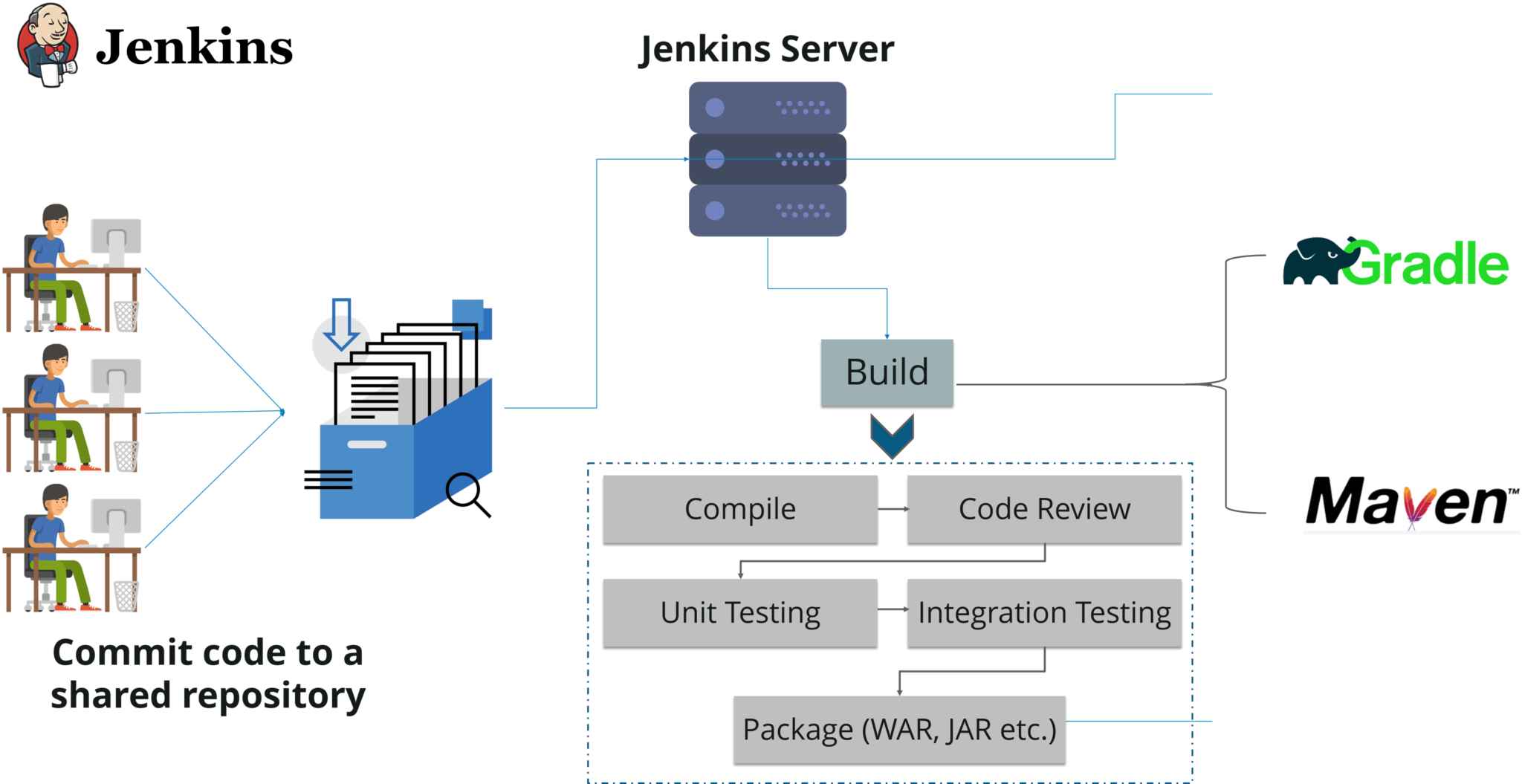
The next step is to learn how to automate the testing phase and simplify it since, as I’m sure you’ve all experienced, there are times when the code runs smoothly in the development environment but not in the test environment. You need to know how to mimic the development environment on your testing servers. You need to know how programs like Puppet, Chef, and others operate for this, and you can also utilize Docker containers for this, so learning Docker is essential. Additionally, you need to understand how to continuously test your code after each commit. Once more, you must combine Jenkins with automation testing technologies like Selenium. Continuous Delivery is the word used for this.
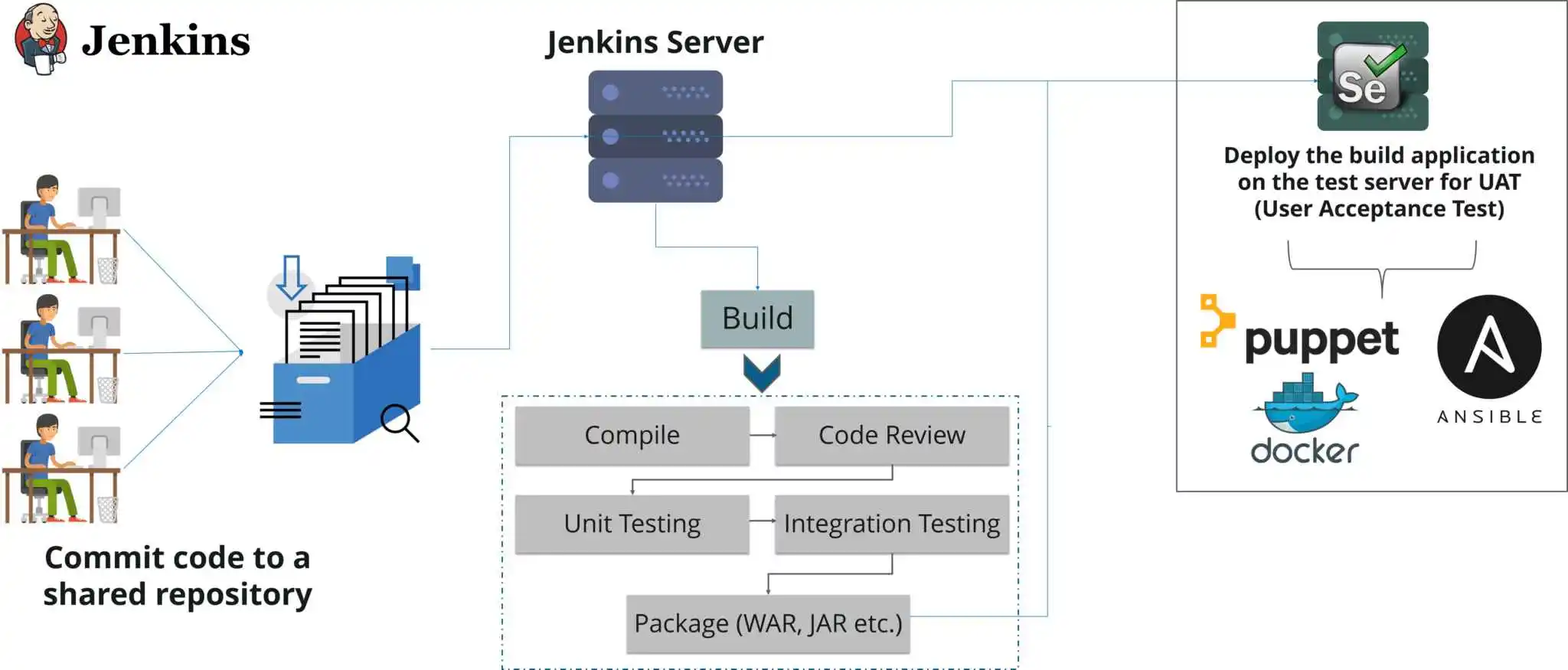



8. Learn How To Deploy And Configure Dev, Test, And Prod Environment:
Finally, you need to know how to deploy the application in a secure manner on the production server. Once more, configuring and deploying it in the production environment requires the use of tools like Puppet or Docker.
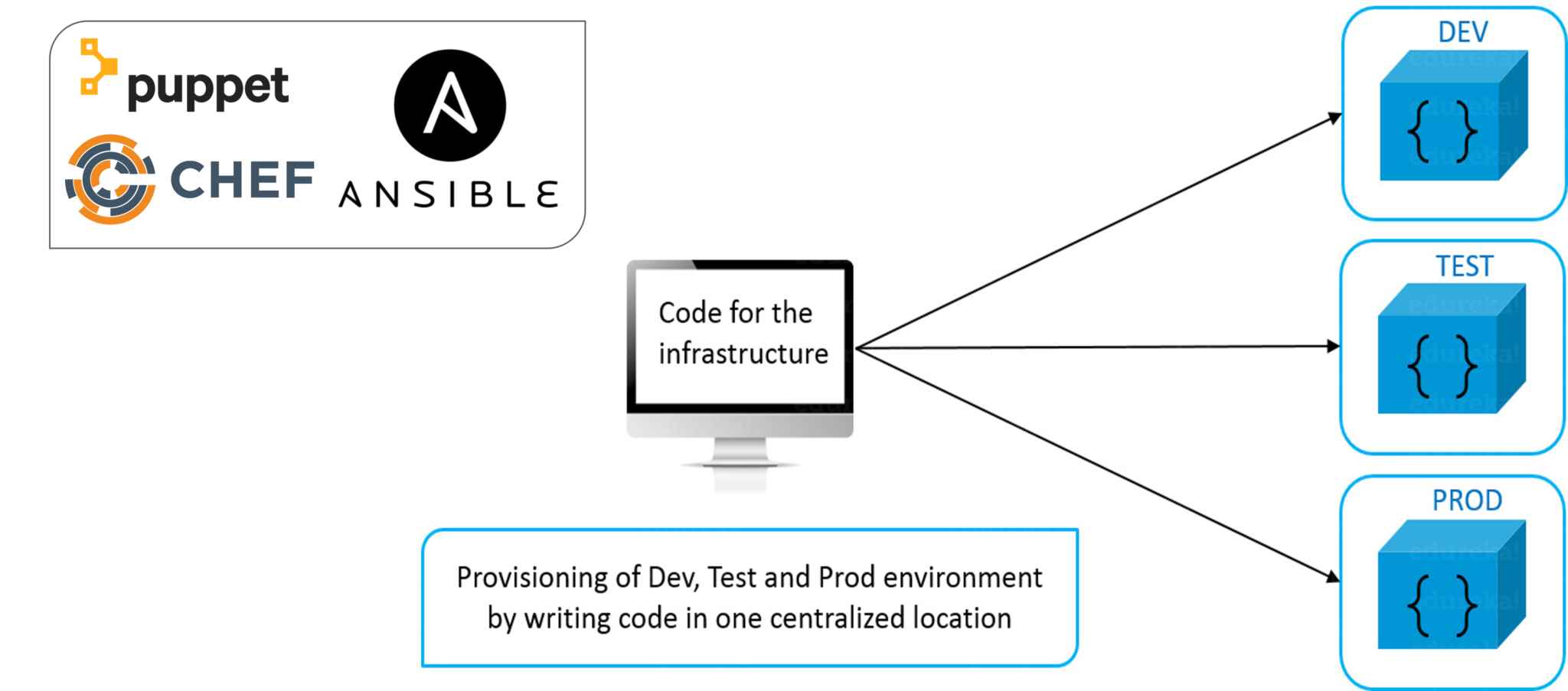
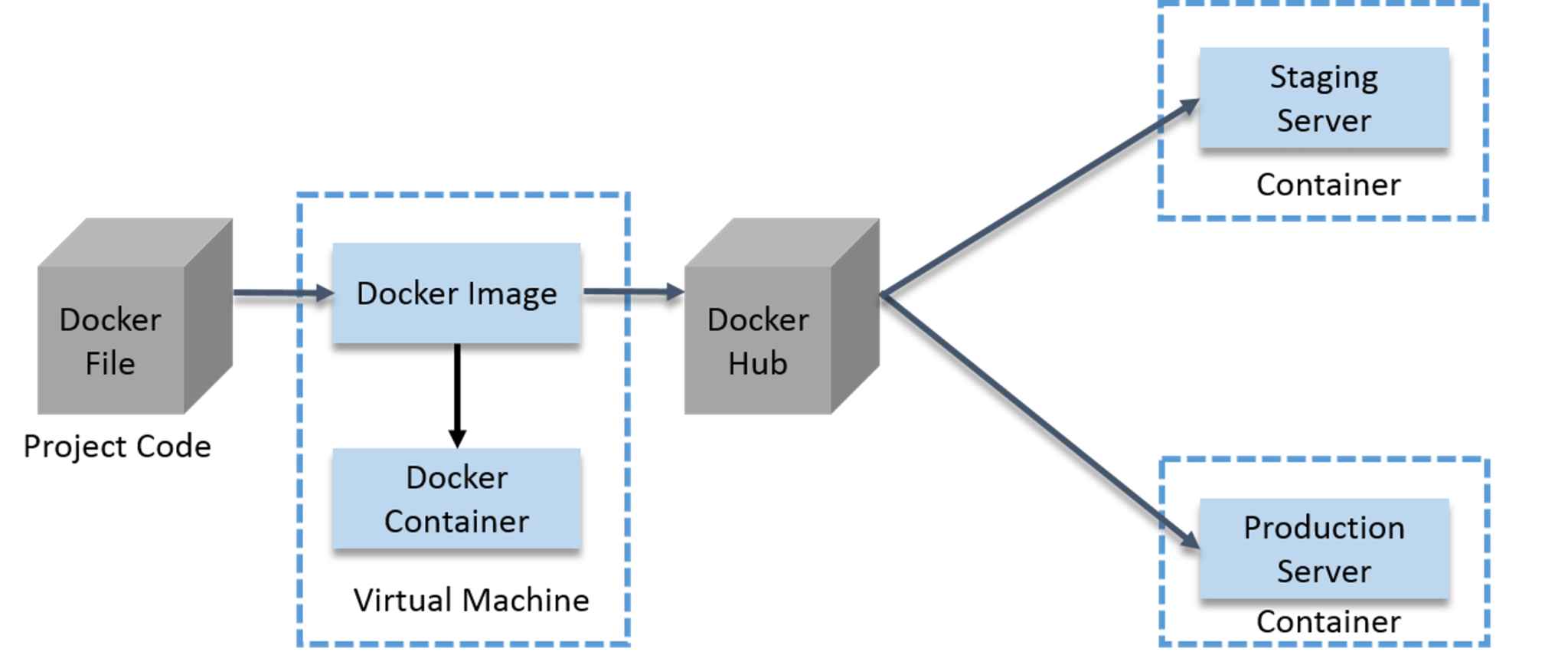
Tools for learning Continuous Deployment include:
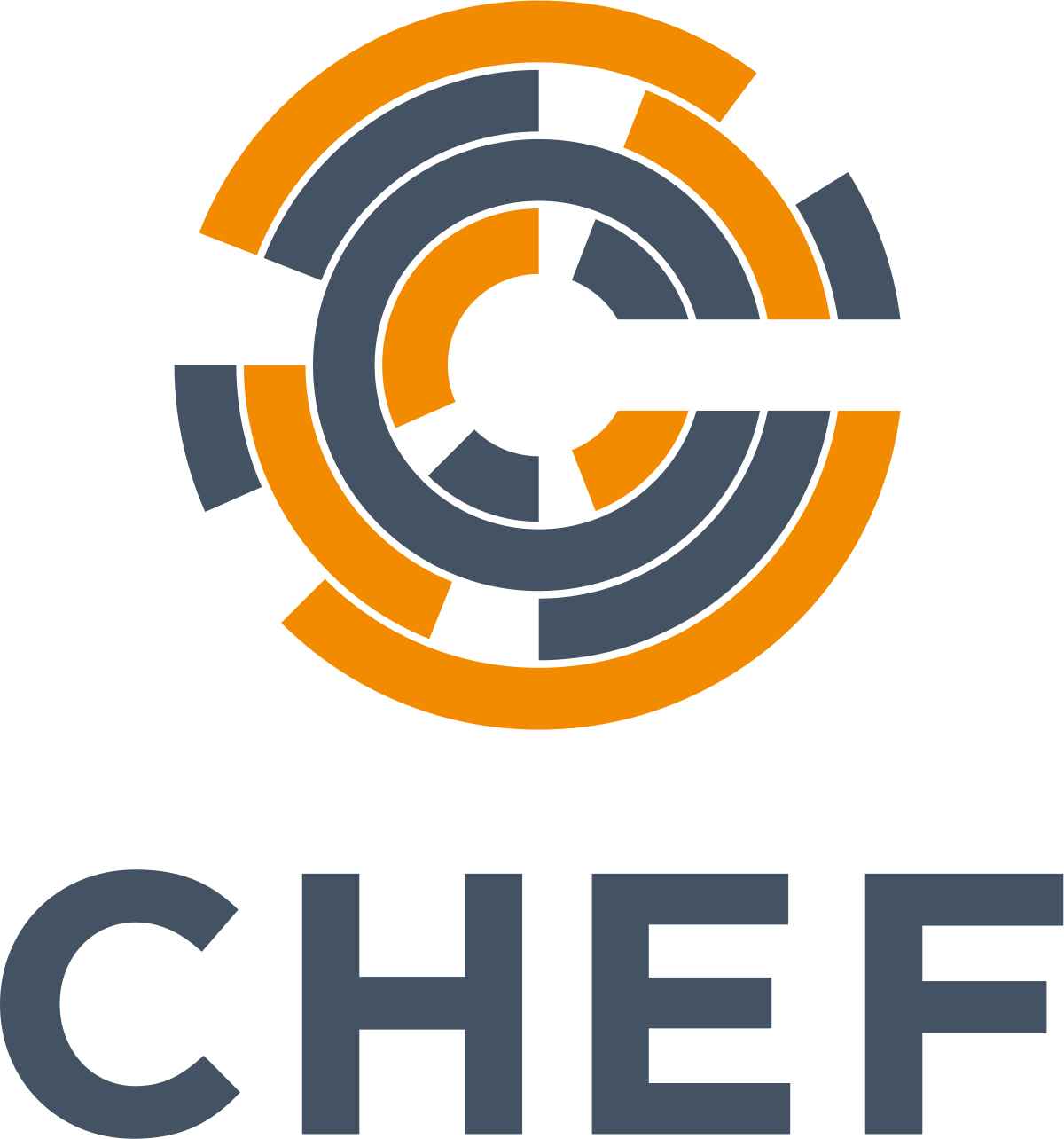


Monitoring is the process of keeping an eye out for warning signals of problems with your application and the infrastructure supporting it so that your operations team may address problems before they become outages. The application and infrastructure components of this practice can be separated.
Application Inspection
It is best to monitor numerous metrics because internal faults with your program can present themselves in a variety of ways.
For instance, a form’s lower-than-average conversion rate could indicate that the form isn’t working properly when customers try to sign up. To give you additional opportunities to spot problems, your monitoring tools ought to signal code faults produced when the signup request is sent together with the conversion rate.
Application monitoring tools to learn include:

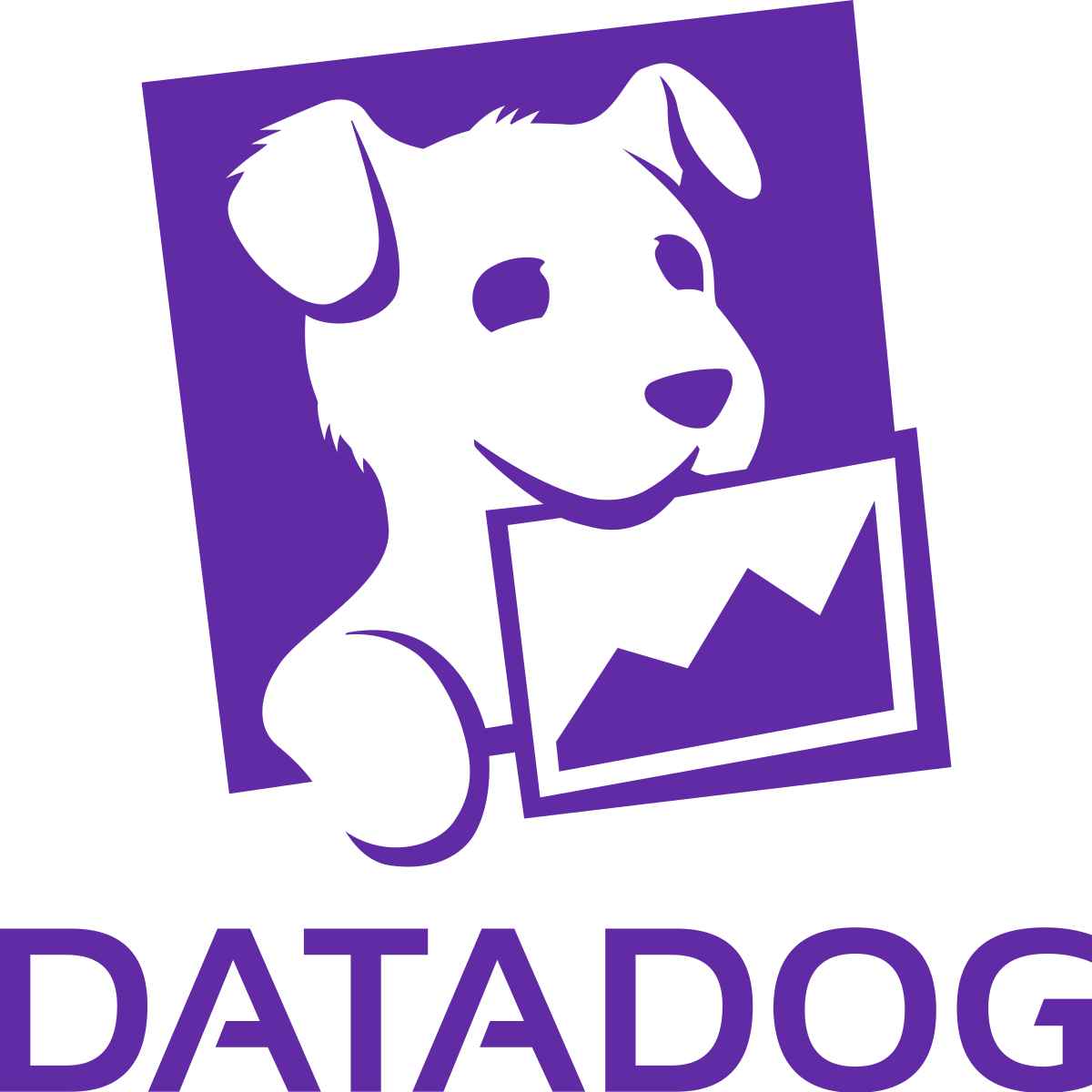

Infrastructure Monitoring
Problems with the infrastructure that supports your application can frequently have an impact that is at least as significant as that of the application itself.
For instance, problems with the cloud hosting for your online application may cause outages for your users when they try to access it. Monitoring tools examine performance metrics and mistakes produced by your application’s stack to detect errors early. The less influence these errors have on your user experience, the faster your team can react.
Learn about the following infrastructure monitoring tools:
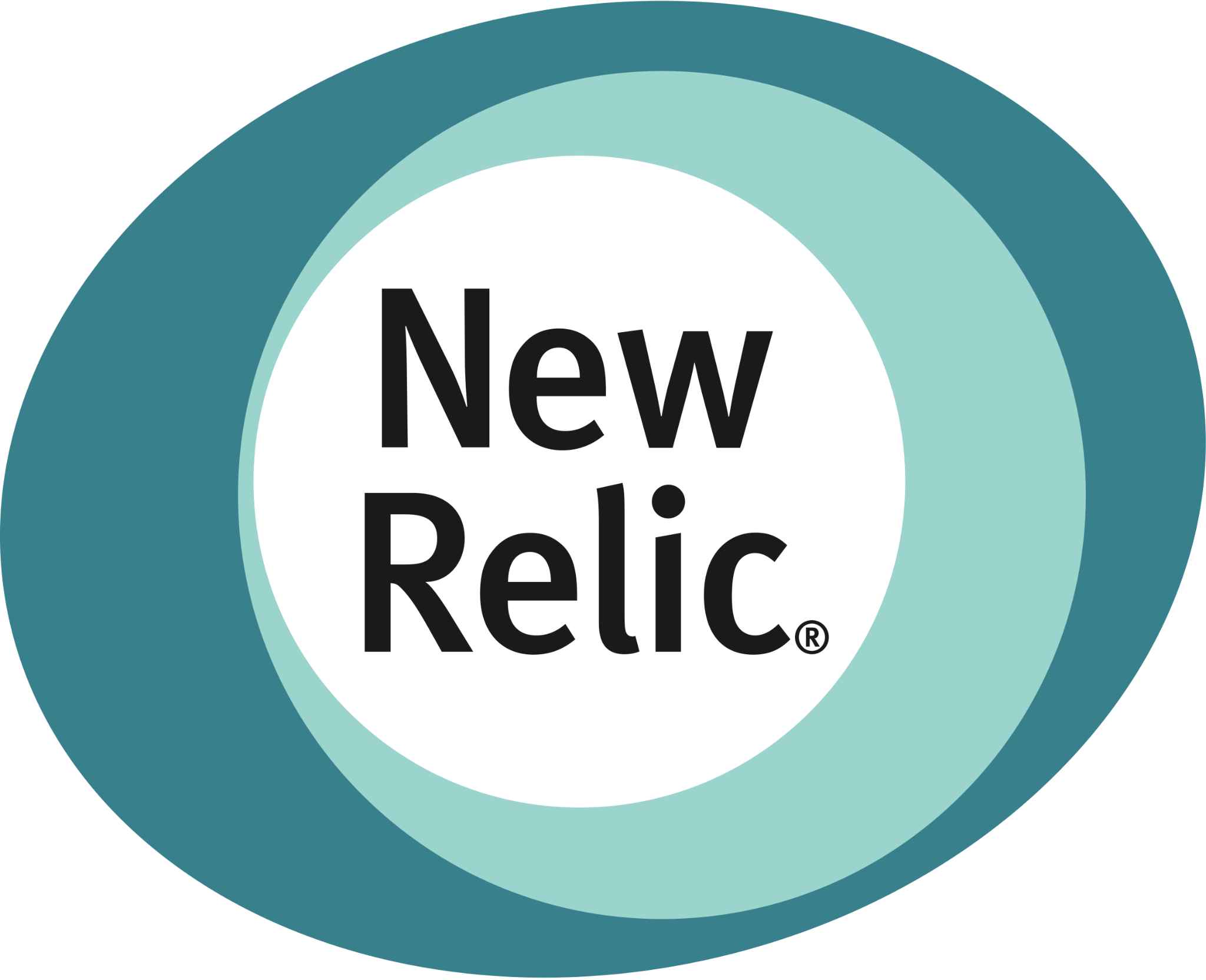


Modern applications are hosted in the cloud in the majority of cases, if not always. When you no longer need to host your servers for your application, cloud services can save you money and give you more scalability, among other advantages. To choose the greatest hosting provider for your completed programs, it is crucial to comprehend the various available cloud services as well as their distinct charges and advantages.
To understand more, consider the following cloud service providers:
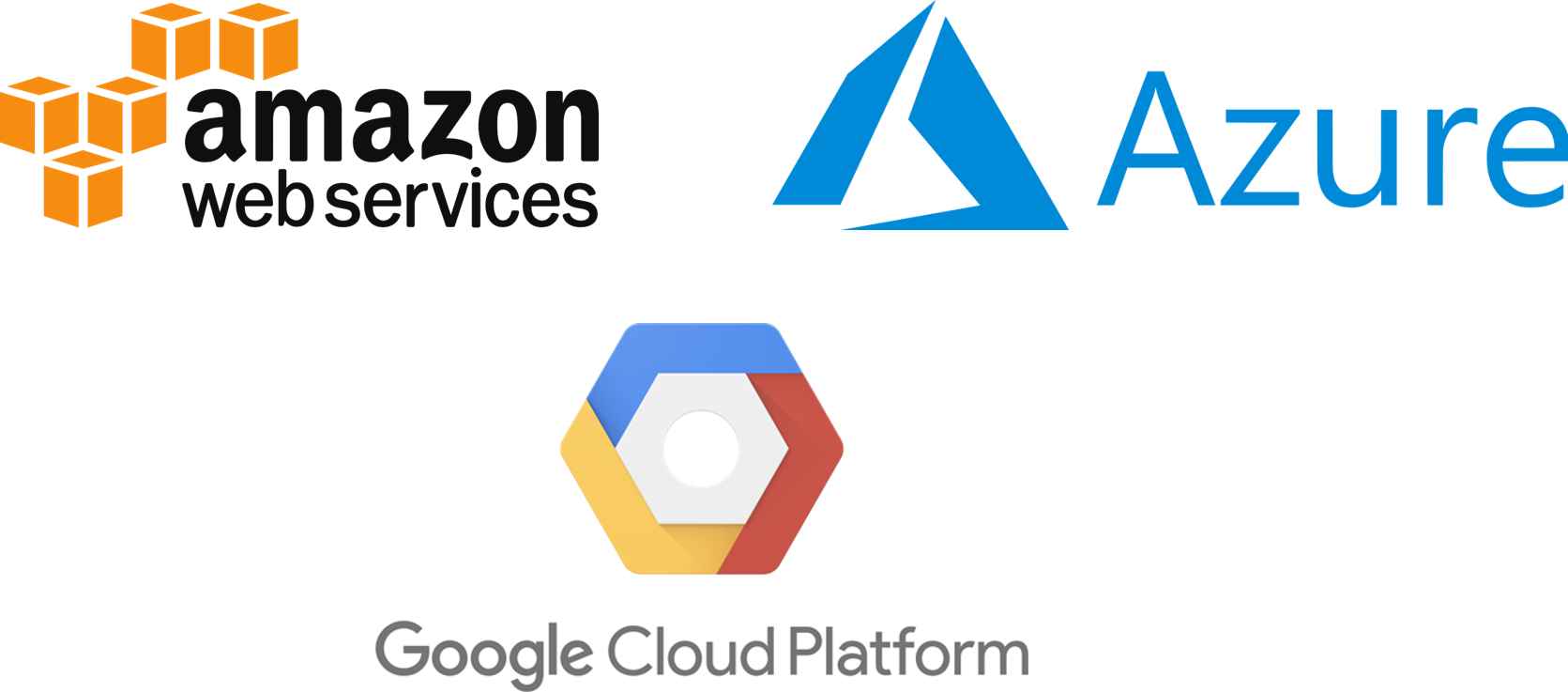

The concepts behind cloud design patterns are what give cloud applications their scalability, dependability, and security. Understanding these trends is just as crucial as comprehending cloud providers.
There are many things you can apply to apps hosted in the cloud as well as your development process before deployment that you can learn from cloud best practices, such as high latency. For instance, if your local storage is down, you can still access your source code by backing it up in a cloud-enabled repository.
Among the cloud design patterns to learn are:
Although the information we have discussed does not fully represent the knowledge you will need to be a successful DevOps engineer, it does cover the fundamentals you should be aware of before concentrating on the finer points. Once you have this background to direct your research process, you will discover studying is much simpler.
Let’s go through some major points based on the various DevOps roadmap milestones before wrapping off this discussion.
You can also become an AWS Certified DevOps Engineer by enrolling in our live courses.
I was fortunate enough to have already learned HTML, CSS, and JavaScript, to use the web development boot camp example once more. This backdrop made the other technologies discussed more interesting to me. The fact that I had experience working on a business website where mobile responsiveness was problematic inspired me to devote more attention to that component of our boot camp.
Any prior knowledge of the software development lifecycle can help a DevOps engineers better coordinate the various DevOps phases and work with their teammates. DevOps engineers handle the whole software development lifecycle. Additionally, it will give them more self-assurance when they make ideas to improve the pipeline.
Technical expertise is vital, but you won’t be able to communicate your reasoning to the team if you don’t understand why you are using a certain method. Understanding the underlying ideas of the technology is essential since a DevOps engineer promotes the DevOps methodology on top of everything else they do within the team. Additionally, having a conceptual grasp will help you later on when you want to learn more in-depth technical information.
Since DevOps engineers are involved in every stage of the DevOps lifecycle, it is preferable to have some general knowledge as opposed to specialization. Your team’s contributors are intended to be experts in their respective fields (development, networking, monitoring, etc.). You are in charge of transferring the finished work between each contributor.
Don’t limit yourself, either, if you do have a solid grasp of the entire procedure and want to learn more. DevOps engineers who are passionate about learning will succeed in this field. Just make sure you’re also paying attention to the bigger picture. There is always a wealth of knowledge — like books — to consume in a field that is expanding like DevOps.
These eight stages are just the beginning; to become a DevOps engineer, you must continue to remain abreast of emerging trends and look for new educational opportunities. Check out this interactive roadmap when you’ve mastered ours.
As I previously indicated, you can visit the official websites of all the key DevOps technologies to obtain a theoretical understanding. But you need practical experience to land a DevOps job, not just theoretical understanding.
You must work on projects that may already be in your organization to achieve that.
If not, you may also take into account the projects offered by Edureka!, which will cover all of the DevOps stages and all of the key DevOps tools.
Want to know how the demand is for a DevOps Engineer or how much a DevOps Engineer earns? Check out my blog on DevOps Engineer Jobs and Salary.
Also, if you want to know more about DevOps, I would recommend you to check out the following blogs:
Got a question on this topic, mention it in the comments section.
I hope you have enjoyed this post on “How To Become A DevOps Engineer” If you are looking for online structured training in DevOps or Post Graduate Program in DevOps courses. check out this DevOps Course with Gen AI program includes 2000+ hours of interactive learning and 12 courses; this will set you on the path of becoming a successful DevOps Engineer.
Master the tools and strategies of devOps release management to deliver high-quality software faster and more efficiently. Take control of your release pipeline and ensure seamless deployments.
 Thank you for registering Join Edureka Meetup community for 100+ Free Webinars each month JOIN MEETUP GROUP
Thank you for registering Join Edureka Meetup community for 100+ Free Webinars each month JOIN MEETUP GROUPedureka.co